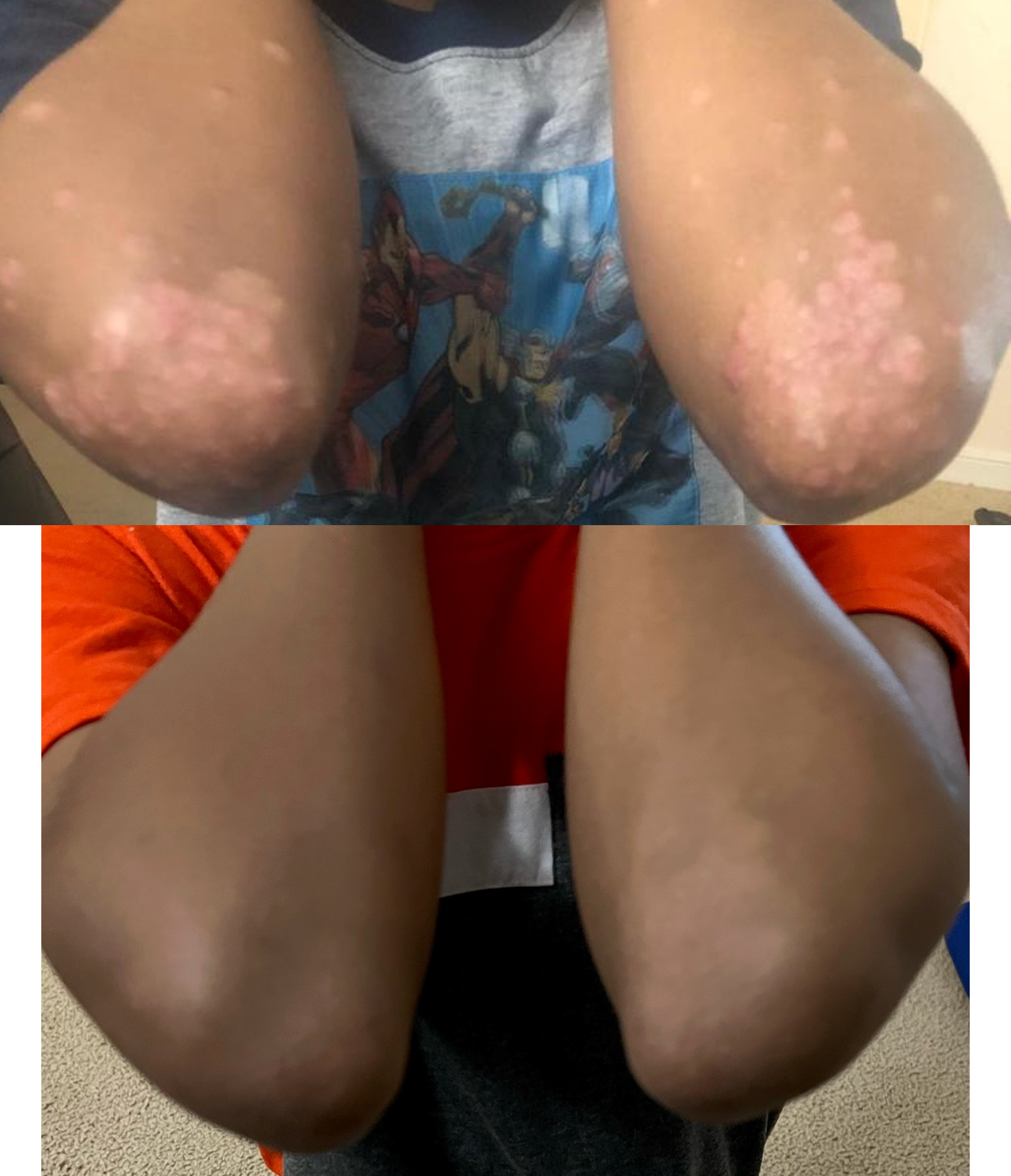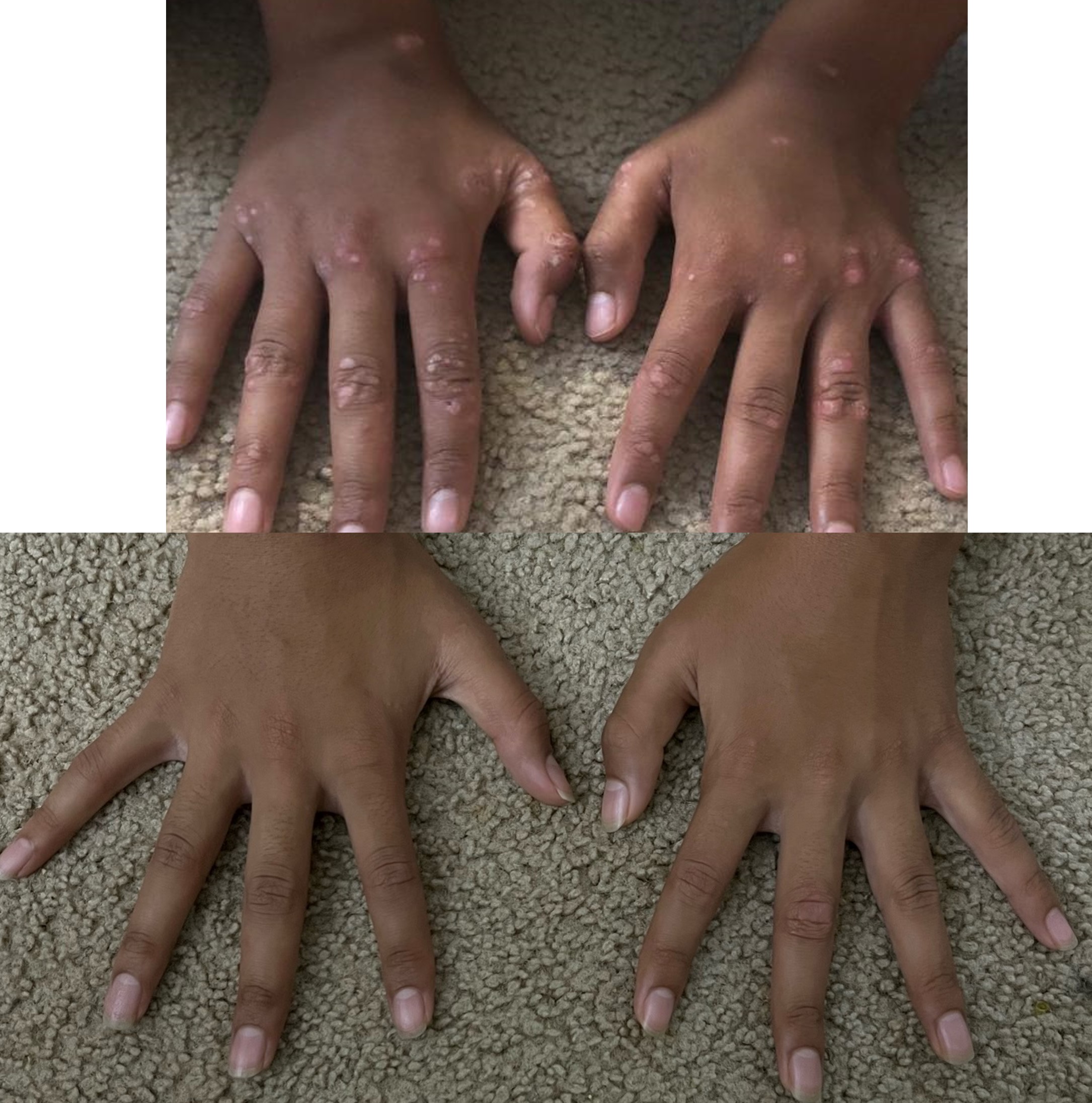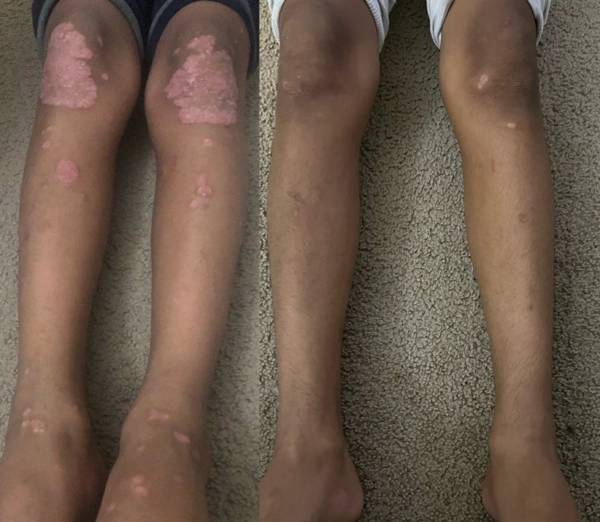Vitiligo is a chronic, (long-standing) supposedly “autoimmune" disorder that removes pigment from the skin, leaving various whitish patches - as seen on the young woman's lips in Figure 1.
This condition is thought to be caused by auto-immunity, when the body's immune system attacks pigment-containing cells that cause patchy, frequently bilaterally located, lightened skin patches. This occurs when melanocytes – the skin cells that produce pigment – are damaged or destroyed, leaving the skin to turn a milky-white colour.
My theory however, suggests that groups of cellular receptors responsible for maintaining skin pigmentation, lose their contact with the brain. Therefore, skin pigment loss, which is frequently bilateral, suggests a "crossover" effect from one side of the brain to the other.
Dr. Chris Reynolds.

Skin de-pigmentation has generally considered to be irreversible, but as shown in the photographs below, wheatgrass extract has significantly restored some of these discoloured areas - often completely, by lightly applying it over the affected area(s) once weekly, and persevering for at least two or three months.


The damage is generally considered to be irreversible. However, wheatgrass extract can help restore these depigmented areas to their normal colour, likely by re-activating damaged cellular receptors in the affected area(s), as shown in Figures 2, 3 and 4.
The before and after wheatgrass extract photographs above and below are of the same patient.

9 November, 2024
Australia.